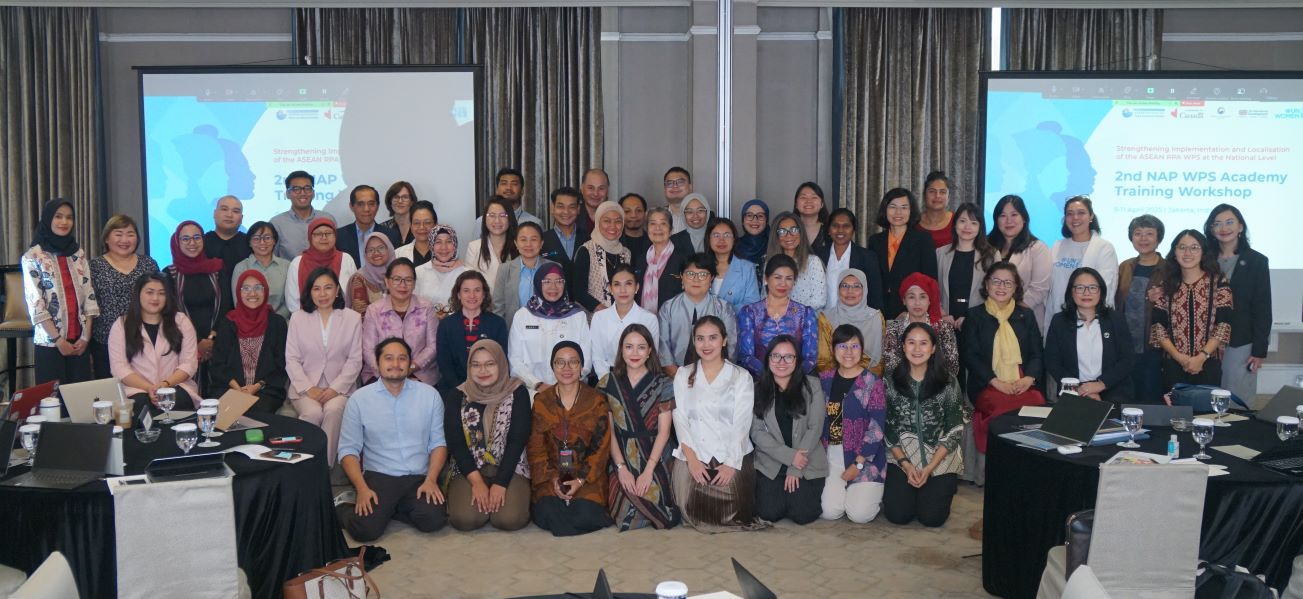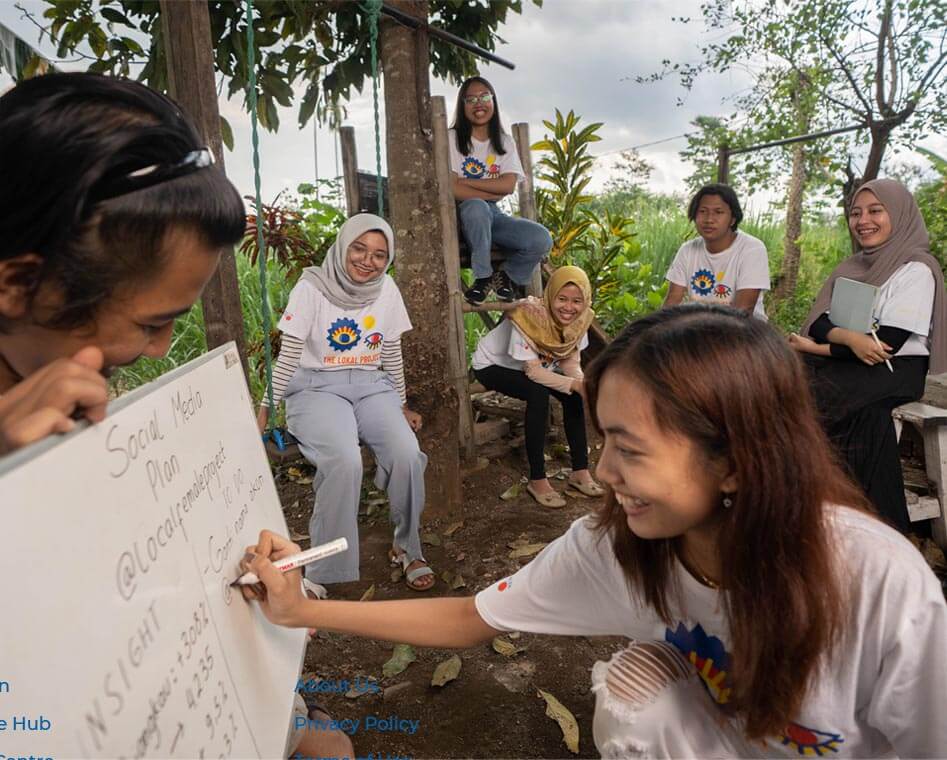Strengthening capacities of government and CSO actors to advance Women, Peace and Security in ASEAN through the second “NAP Academy” training workshop

Jakarta, Indonesia – In the heart of Jakarta, the second National Action Plan (NAP) Women, Peace and Security (WPS) Academy (NAP Academy) training workshop was convened from 9 to 11 April 2025 bringing together around 60 passionate advocates, policymakers, representatives from civil society organizations from across ASEAN.
With ASEAN Institute for Peace and Reconciliation (ASEAN-IPR) and UN Women leading technically and supported by the governments of Canada, Republic of Korea and the United Kingdom, the workshop marked a pivotal moment for localizing the WPS agenda in Southeast Asia.
Reflecting on the region’s collective progress, I Gusti Agung Wesaka Puja, Executive Director of the ASEAN-IPR, shared his thoughts “It is truly inspiring to witness the visible growth and steadfast commitment of ASEAN in advancing the WPS agenda, commitment that is not only evident in our collective progress but also powerfully marked by this very training. Each step forward in developing and implementing National Action Plans on WPS is more than just policy progress. It is a testament to our collective dedication to a more inclusive, peaceful, and resilient future.”
“Women and girls have a critical role in finding solutions and advancing ASEAN’s aspirations for a people-centered community. The participants representing the government, civil society or academia etc, are carrying not only the responsibility, but actually bringing in a unique momentum and the opportunity to help sustain peace, which is the most important agenda in the region,” said Ulziisuren Jamsran, UN Women Indonesia Representative and Liaison to ASEAN, opening the event with a powerful call to action.
The NAP Academy was the second iteration building on the first NAP Academy held in Thailand in 2024 and focused on translating the ASEAN Regional Plan of Action on WPS (2022) into national action and highlighting the role of civil society in doing so. Participating countries—Indonesia, Thailand, the Philippines, Viet Nam, Cambodia, Malaysia, and Timor-Leste— shared progress, challenges and lessons learned on NAP development and implementation.
Throughout the three-day event, the workshop facilitated peer learning on themes such as multi-stakeholder and inter-ministerial coordination, development of accountability mechanism and strategic approaches to the development and implementation of NAPs on WPS.
“The most important thing I learned this week is the value of integrating grassroots women’s voices into national policy discussions on peace and security. This matters greatly for advancing WPS in my country because it ensures that policies reflect the real needs and experiences of women affected by conflict. Empowering local women leaders through inclusive dialogue not only strengthens peacebuilding efforts but also builds long-term community resilience,” a government representative from Thailand shared.

